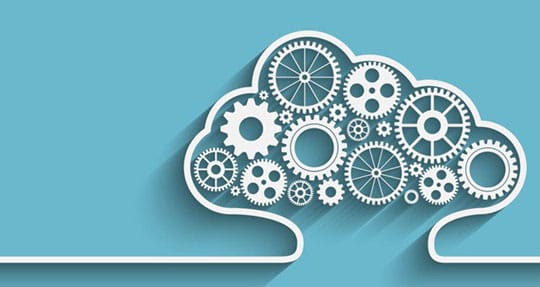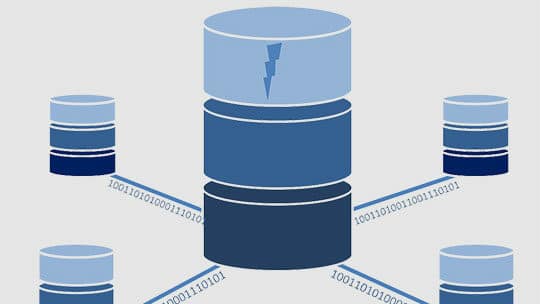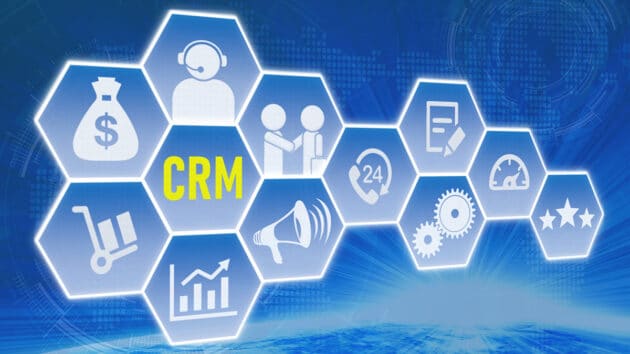In the world of business, customers reign supreme. Without them, a company simply cannot thrive. But building and maintaining strong relationships with customers is about more than just ensuring continued patronage. It’s about creating a positive, engaging experience that keeps them coming back for more.
To achieve this, businesses must remain vigilant in protecting and nurturing those customer interactions, cultivating a loyal and dedicated following that drives success and growth. So whether you’re a seasoned pro or just starting out, remember: putting your customers first isn’t just good business – it’s fundamental to your success.
Utilizing Customer Relationship Management (CRM) to track customer data is crucial in building and maintaining strong customer relationships. Companies have discovered the many benefits of incorporating spreadsheets to manage customer information and streamline the sales process. Beyond just data management, CRM provides valuable insights that can optimize strategies and improve overall customer satisfaction.
As businesses grow, managing customer relationships can become a daunting task. That’s where spreadsheets come in – they provide a simple and effective solution for tracking customer interactions and details. However, if you’re new to CRM, you may be wondering what the buzz is all about. CRM software is a powerful tool that allows for deeper insights and automation of tasks.
While each option has its own advantages, the key takeaway is that proper management of customer relationships can lead to increased sales, loyalty, and success. So why not streamline your approach with spreadsheets or CRM software? Your customers – and your bottom line – will thank you.
Advantages of Using CRM Excel Spreadsheets

Microsoft Excel remains the top-of-mind choice for professionals who depend on spreadsheets. Its user-friendly interface and simplistic design make it a hero among office tools.
But, did you know that there are even more reasons to love this application? You can utilize Excel to build an effective CRM spreadsheet! This will streamline your lead management process, improve communication across departments, and effectively track customer interactions. It’s obvious to witness why Excel is the go-to option for enterprises of all sizes.
Since spreadsheets are free, built-in, and a stand-alone program, you have all your customer data in a single file accessible to the sales team. The file type is also exportable. It is also accessible via mobile application or web browser.
There are several formulas and functionalities that you can do in an Excel spreadsheet. Plugging data into your spreadsheet is like a calculator that can give you instant results. It can also analyze data, and filter and sort information.
The best thing about spreadsheets is that there are several templates you can use to customize your spreadsheet to your business needs. Several websites offer thousands of free and premium templates that you can use for your business, from finance and accounting spreadsheets to small business template collections.
Recommended for you: How to Choose the Best CRM Solutions for Your Business?
CRM System vs Excel Spreadsheets

Which is a better customer management solution – CRM software or spreadsheets? Big and large-volume industries opt for CRM software because it offers them comfort and data security in tracking leads, automating sales tasks, sending emails, and creating reports.
For small businesses that are still working on establishing a solid customer base and increasing their revenue, using Excel spreadsheets is a better choice. A small business would find a way to minimize expenses, and using an Excel spreadsheet is free, while CRM software comes with a cost. Here are other points of comparison between CRM Excel spreadsheets and CRM software:
- Tracking leads and customer interactions through the sales pipeline using CRM software is more efficient.
- Sharing files and working collaboratively is more manageable with software than with a spreadsheet.
- The software can store, and process large volumes of customer data compared to spreadsheets.
- Data security is given importance in CRM software. It uses data encryption to protect stored data.
CRM vs Spreadsheets: Why Shift to CRM Software?

“Deciding to shift from spreadsheets to CRM software should not be rushed. Rather, it should be given much thought. You must consider your current customer, sales volume, and potential growth before deciding to make a shift.” – as quoted by Simple Sheets in one of their recent blog posts.
When you are seeing growth in your sales and an increase in customer transactions, it is advisable to consider adopting CRM software for your business. Also, when you are constantly experiencing data management issues, it is a sign of a shift.
Listed below are some reasons why many businesses are using CRM software.
1. Managing Customer Data Entry

When your business is handling large volumes of customer data, managing them can be challenging. But, with the help of CRM software, you can share files with your colleagues conveniently. This facilitates a more collaborative and simultaneous workflow in the office.
With CRM software, you can easily build and manage customer data files which include customer profiles and their sales transactions and interactions. The use of CRM tools gives you more flexibility and doesn’t limit the number of customer data to encode.
2. Sales Reporting

The overall sales process and reporting of your business can conveniently be monitored using CRM software. Monitoring helps the business manage leads, track conversion rates, and monitor the business’s overall productivity.
With spreadsheets, you would still be asking for help when you store and format data. However, with CRM software, you don’t have to seek help when encoding data and creating reports in real-time.
You may encounter more errors when you unintentionally change the data in your spreadsheet data. This is a problem that you want to avoid as much as possible. Software, on the other hand, is not prone to errors because you can slice and dice data.
Creating visual elements on spreadsheets is helpful. However, adding so many visual elements to your spreadsheet can limit its data processing capabilities. With software, however, this is not a problem for it can process complex and large data effortlessly.
3. Time Management and Work Monitoring

Many companies are still manually managing customer records. Hence, several sales reps have expressed how much time they spend on paperwork and encoding customer information. Businesses should focus more on selling instead of spending much time on paperwork.
Many companies have seen how spreadsheets fail regarding data entry efficiency, wasting valuable time and decreasing work productivity. But, with software, you can spend less time doing paperwork, and other manual tasks, for you, can collect and store data from websites, social media accounts, and other platforms.
Work monitoring and recording are possible with CRM software. You can track what each sales rep is doing and how they perform. This is useful for performance evaluation and goal setting.
You may like: 7 Best Tools to Build a Positive Customer Relationship.
4. Automation

Using CRM software can automate all your office activities. There is no need to open an Excel file whenever you have new data or leads for encoding. In an automated setup, new leads are automatically added to the database.
Automation helps save a lot of time, unlike spreadsheets, in which you have to encode everything manually. Manual encoding is not only time-consuming, but it is also prone to errors.
5. Collaboration

If you are using spreadsheets, you won’t be able to access your files if you intend to work remotely. Using Google Sheets on your mobile device is possible, but working on your phone can be challenging. On the other hand, CRM software has a mobile application suitable for working remotely.
Working in a large company handling large volumes of data is challenging for sales team members to keep track of sales and customer data constantly coming in daily. The software encourages collaboration, where each team member can post comments or chat freely with each other on a given project.
6. All the Data Stored in One Place

With spreadsheets, you must access multiple spreadsheets to retrieve the data you are looking for. But, with software, you just need to access a single window. The software provides a central location where all the stored data are linked for easy access with just one click.
7. Data Security

If you are a small business owner, you can use a spreadsheet to manage customer records. Over time, when your business is growing and is hiring more people to handle customer relations, a spreadsheet may no longer be a suitable tool.
Spreadsheets are prone to human error; one mistake can destroy your spreadsheet file. Spreadsheets can easily be copied and shared. This can threaten your whole business.
The best thing about CRM software in terms of data security is that employees are given varying privilege access to handle data. The activities they do on the software can be tracked, which is a big plus for security.
8. Activity Planning

A CRM software system manages not only customer data. The software can track customer contacts and manage business opportunities. It also has useful tools for planning activities and scheduling tasks.
CRM software can automate manual tasks such as planning and scheduling business activities and transactions. With software, you can schedule tasks like calling a customer for feedback or calling to ask for updated information.
When to Shift to CRM Software?

You must know that shifting to CRM software comes with a cost, unlike spreadsheets that are free to use. However, many businesses are willing to pay because of how beneficial using software is for their business.
If you are planning to make a shift, below are some questions you need to answer:
- Do you receive several phone calls and email messages daily?
- Do you engage in business with various types of clients?
- Does your customer relations department have more than three personnel?
- Is data security important to you?
You may also like: What is C-SCRM and Why Would You Need it in your Business?
Final Thoughts

Small or start-up businesses use spreadsheets because they are highly accessible and free to use. You can conveniently use it as a customer database.
On the one hand, when a business is growing and there is an increase in customer traffic, the use of spreadsheets is no longer advisable. CRM software is a better choice. It is a reliable tool for handling large amounts of customer information.
Deciding whether to use spreadsheets or software to manage customer information is not easy. There are several considerations that you have to take note of. If you are not yet ready to take the leap and shift to CRM software, that is alright. You can use spreadsheets because these are also excellent data management tools. Though, be open to changes and weigh your options if the need arises.





